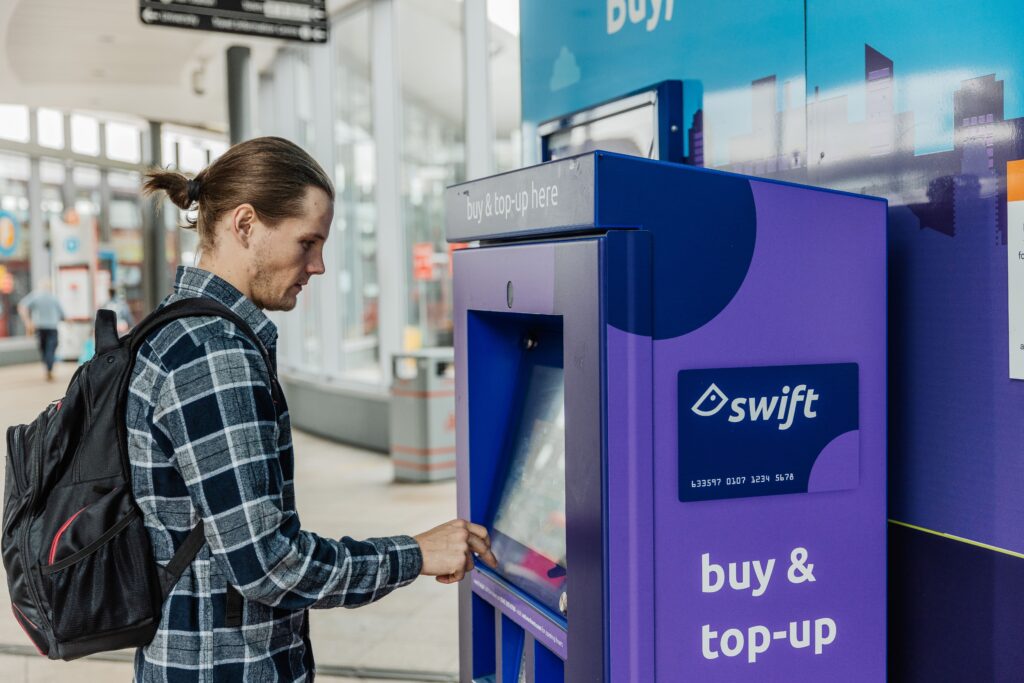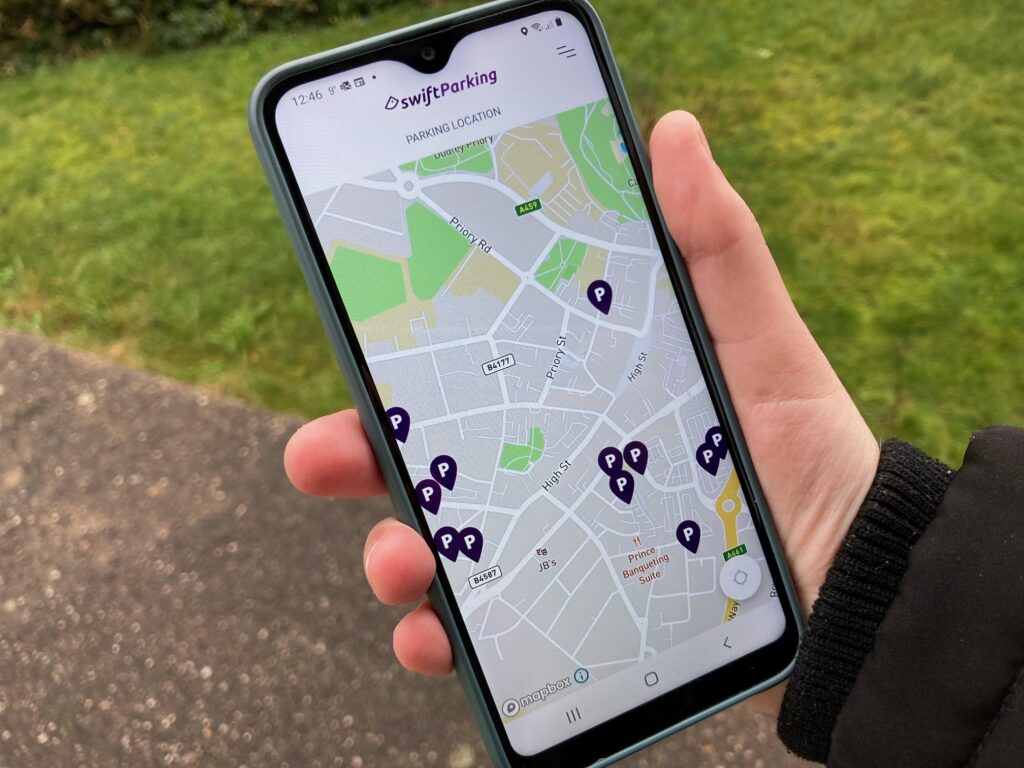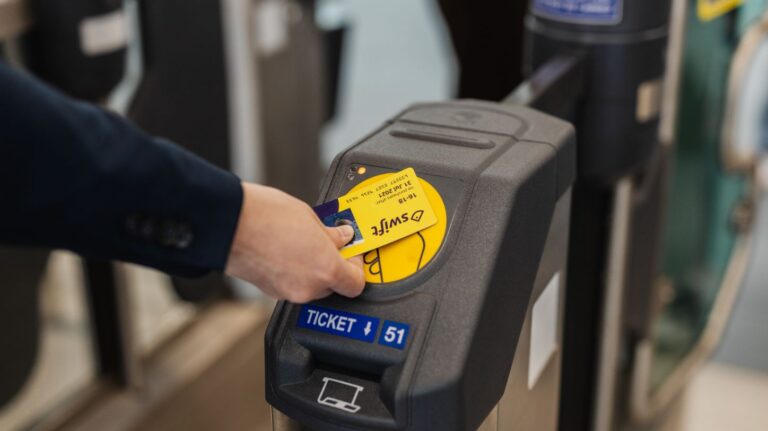Transport for West Midlands is working to develop a new contactless smart payment system that promises to bring the full benefits of London-style ticketing to the rest of the UK. Reuben Henry-Fellows reports…
Crisscrossed by many of Britain’s major transport arteries, the West Midlands’ position at the heart of the UK grants it access to 141.2 million annual visitors who contribute £14.1bn to the local economy. Recognising the vital importance of maintaining its transport network, in 2010 the West Midlands Combined Authority (WMCA) reassessed how it administered the region.
The impetus behind the change lay with how London had revolutionised its own transportation network following the introduction of the Oyster card in June 2003. Oyster is an integrated smartcard capable of enabling seamless travel across London’s public transport options. By 2012, 43 million Oyster cards had been issued and constituted 80% of all journeys in the UK capital.
Seeking to emulate London’s success, WMCA began pilot testing its own iteration in 2011, aiming to use the resultant funds to tackle congestion, pollution and climate change issues. The result was Swift, a fully integrated smartcard that granted use across WMCA’s bus, tram and rail networks.
“The Swift card helps people that want to travel but can’t access a bank card,” details Matthew Lewis, technical director at Transport for West Midlands, which sits under WMCA. “There are so many people who are unbanked, children don’t always have access to a bank card. You can’t have a situation where, if you’ve got a bank card, you get these great benefits of best value fares and not provide those great benefits to everyone else. You’re always going to need to provide people with easy access to public transport.”
FAST FACT: Around 720,000 daily bus and tram journeys in London are made using contactless methods. Source: Transport for London
An accompanying app sought to move Swift beyond its London-oriented predecessor, offering live map updates, online payments, electronic receipts and remote extension options when the app expanded to include parking options in 2021. Launch incentives aimed to shorten the gap between Swift and conventional payment cards, with free or discounted fares boosting the card’s popularity to 35.7 million users in 2017.
“When Swift launched, the main bus operator [National Express] was not convinced,” says Lewis. “We had to cast off a few myths, such as ‘Does the technology work? Do the customers want it?’ But after National Express eventually came on board in 2014, Swift users shot up overnight because National Express carry about 90% to 94% of the passengers.”
By the time WMCA launched the additional parking services for car parks across the West Midlands in 2022, the Swift smartcard boasted 50 million journeys made using the app.
Ticketless to ride
However, Swift’s success obscured the primary motivation behind its inception: the development of a truly integrated payment system. In this, WMCA found that replicating Transport for London’s (TfL) Oyster card presented several complications, not least that the meteoric rise of the little blue card was inherent to specific market conditions from which it launched. At the time of its conception, contactless payment would not be available in the UK for another four years. When the technology finally launched in 2007, contactless was restricted to a £10 top-up and was unavailable for use on public transport until 2012 on buses, lasting until September 2014 for tube and rail journeys, granting Oyster time to establish a considerable foothold.
London transport also operates on a relatively closed system, with users travelling to – and not through – the UK capital. Combined with its urban, densely population, TfL can operate a high retention economic model guaranteed to receive high monetary input. Additionally, Oyster was supported by an £800m operator deal over its first seven years, with another 17-year deal granting £1.1bn in total investment. By the time contactless was king, surpassing Oyster use on TfL systems in 2018, the system was too well-supported and efficient to fail.

Outside of London, and possessing a smaller, transitory customer base, the same conditions that fostered the Oyster’s success simply do not exist for WMCA. “London does this very differently. [The] London system cost them about £1.1bn, and no one else has access to that level of funding to do it,” says Lewis. “But learning along the way is quite expensive. It’s much better to be behind someone else that’s leading and picking up the good bits.”
WMCA experienced the lack of applicable models first-hand when it sought to expand the integration of West Midlands parking within its parking app. After initially finding success, Swift parking incorporated 35 car parks across the region, including 29 council-owned facilities in Dudley. However, WMCA found that local authorities were reluctant to fully integrate their payment systems for fear of losing their monopoly, and the extension was subsequently shelved.
With Swift’s viability as a unifying smartcard still in retention, WMCA realised that providing customers with best value would only be achieved through a comprehensive, unified and fully integrated payment system. “If I use my Swift card now in the West Midlands, I tap on a bus and the back-office system gives me the best value,” explains Lewis. “If I try that with my bank card, the moment I move from one operator I potentially overpay because bank card information is not shared between operators.”
Convergently adapting to the public’s needs, was, however, a realisation that several organisations had also began to actualise. “We’ve designed a solution that allows that message to be shared between all operators so that the best value can be applied. Everyone recognises this problem, and everyone, including the government, is looking to us, in partnership with Midlands Connect and the bus operators, to resolve it.”
FAST FACT: 61% of UK consumers used mobile payment options in 2022. Source: Sum Up
Acutely aware of the need for a replicatory system adaptable not only to the Midlands but to the rest of the UK, research and development body Midlands Connect and Project Coral, a multi-operator bus partnership seeking to create a national, capped scheme, collaborated with WMCA to produce a solution. “WMCA, Project Coral and Midlands Connect put together a specification and engaged with the market with Mastercard and Visa, and we’re about to go out to tender for the solution, reveals Lewis”
Through the creation of a unified system, the West Midlands may finally be able to, if not compete with, then at least emulate, London’s model, streamline the effectiveness of its travel options, reduce customer costs and increase its revenue. With procurement expected to have gone out by the end of April 2024, the three-way organisational partnership could trial the new system in the West Midlands by as early as 2025. If the trial is successful, the system will expand to Nottingham, with a longer-term view of it eventually becoming a nationwide application. “We’ve got £18m and we’re going to deliver the experience that happens in London throughout the rest of the UK,” says Lewis.
Payment’s path forward
If – or indeed when – the new system sweeps the UK, the plan is for Swift to remain operational in WMCA administered regions. However, as it slowly loses its monopoly on integrated travel across the West Midlands, Swift’s usage is anticipated to sharply decline. Thus, a managed decline of the service, planned obsolescence, would still be as effective as Swift maintaining dominance.

According to Lewis, the primary motivation behind the card, and the integration of payment systems, is to optimise public transport travel. “When London rolled out contactless payment, they saw it as a means of replacing the Oyster card. However, 10 years later and Oyster is still used to pay for about 40% of all journeys. Oyster and contactless are complementary of each other rather than competing. Also, there’s lots of competitors for Swift now, but I’m a Transport for West Midlands employee, so I’m not wedded to Swift, I’m wedded to anything that makes it easier for people to use public transport.”
Legacy payment systems have necessitated single city or regional models, but as local councils across the country focus on improving their environmental policies in line with the UK government’s Net Zero goals, and the Zero Emission Vehicle mandate encouraging the public to switch to electric vehicles or use public transport, increasing county integration will become a focal point of inter-council relationships.
“If there was a way through the contactless payment system to deliver that sort of solution, then you might be able to remove Swift and simply have a white label bank card,” Lewis concludes. “But everyone’s got their own version of Swift; Liverpool’s got one, Leeds has got one, Newcastle’s got one – it would take something compelling to justify the investment in a replacement of your own smartcard, whereas we’re offering a prebuilt system that will enable cities and regions to get rid of their existing platform. Travel is always going to be important.”
This article originally appeared in the May 2024 issue of CiTTi Magazine
Achievements and innovations in ticketing schemes and payment technology will be celebrated at the third annual CiTTi Awards, which will be held on 26 November 2024 at De Vere Grand Connaught Rooms in London. Nominations are now officially open! Please visit www.cittiawards.co.uk to learn more about this unmissable event for the UK’s transportation sector





